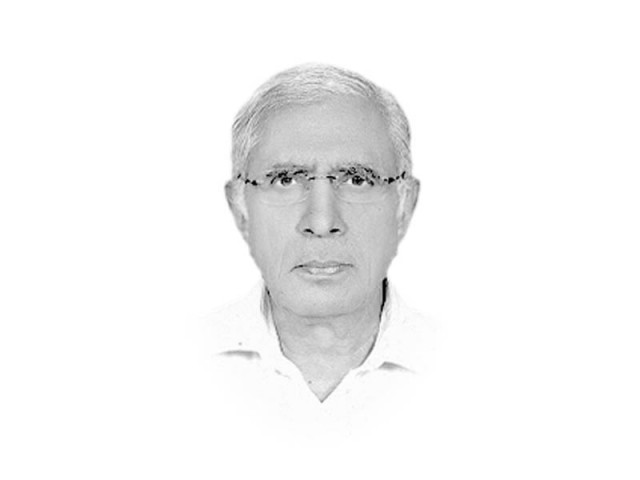Let us focus on economic security
Economic security which is very much essential for safeguarding the national security

The writer served as Executive Editor of The Express Tribune from 2009 to 2014
So, by December 1999 our isolation was almost complete which naturally triggered a serious debate in the national media. However, General Musharraf was undeterred. He invited some senior journalists to the COAS house for a briefing. He claimed: Pakistan would never be consigned to isolation because it is 1) the hub of fundamentalism; 2) located adjacent to a major source of narcotics; 3) a nuclear armed country and; 4) a close neighbour of China. This was proven immediately when Pakistan went to the IMF for help under the standby arrangement. Two important members of the board: the US and the UK which because of their respective domestic laws could not have approved the application of a country ruled by the military, abstained from the June, 2000 Fund board meeting facilitating approval of our application.
This was proved once again recently when the Fund allowed Pakistan as many as 15 waivers, as we ‘successfully’ completed this September, a three-year Extended Fund Facility (EFF) amounting to $615million. This happened despite the fact that the developed world led by the US has continued to accuse Pakistan of playing a double game - going against militants challenging Pakistan’s security agencies while allegedly protecting and promoting those who allegedly use Pakistan’s soil to launch ‘terror attacks across the Durand Line and the Line of Control.’ However, our experience of the 1990s should caution us against reposing too much faith in this ‘grudging goodwill’ of the developed world. Already our detractors, especially the paid lobbyists of Modi’s India in the world capitals have started mobilising political opinion for getting terror related sanctions imposed on Pakistan. And do we remember what the US presidential candidate Hillary Clinton whose victory is almost guaranteed now that her opponent has wrapped himself into a straightjacket told us when she was visiting Pakistan (Sept 2010) in the capacity of US secretary of state? She had warned Pakistan that if it wanted to continue receiving US aid it must tax its elite.
Economic security which is very much essential for safeguarding the national security, therefore, demands that we focus our attention single-mindedly on economic reforms, especially tax reforms as well as on injecting new life in our cotton and textile sector - the backbone of our economy. Indian textiles are said to have started displacing Pakistan from most of its traditional markets including even the Chinese market.
This is happening because as the All Pakistan Textiles Mills Association (APTMA) claims one textile mill is closing down every day in Pakistan. This is the situation in a sector which has a share of 52% in our total export, contributes 46% in total manufacturing, has a share of 40 % in the total labor force, contributes 8.5% to country’s total GDP and is one of the largest borrowers of banks and financial institutions.
The APTMA further claims that as a result of the closure of so many mills textile machinery valuing billions of dollars has become obsolete and hundreds and thousands of textile workers have been rendered jobless. There has also been a sharp decrease in cotton growing area and Pakistan’s share in global textile trade has come down to 1.5% from 2.3% as textile exports have dwindled to less than $18 billion from $25 billion in 2013-14.
One wonders why the government is not paying urgent attention to the remedial measures proposed by the APTMA like withdrawal of 4% duty on import of cotton, resolution of anomalies relating to zero rating, removal of 1.25% Cess collection on textile raw material, imposition of regulatory duty at the rate 15% on import of manmade fiber yarn, removal of Gas Infrastructure Development Cess and reduction of gas tariff and removal of all surcharges on electricity tariff in line with regional competing countries and inclusion of long-term financing facility in indirect export and abolishing of turn over tax for the next five years or reduced to 0.25%?
Published in The Express Tribune, October 15th, 2016.
Like Opinion & Editorial on Facebook, follow @ETOpEd on Twitter to receive all updates on all our daily pieces.













COMMENTS
Comments are moderated and generally will be posted if they are on-topic and not abusive.
For more information, please see our Comments FAQ